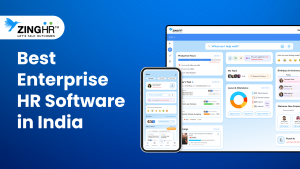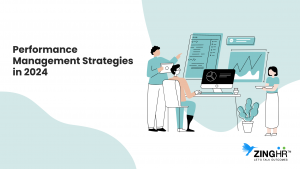We are excited to announce an Upcoming webinar on Talent & Tech Talks Compensation Workbench. This session is designed to provide valuable insights into the latest trends and best practices in Compensation Management.
Webinar Details:
Topic: Talent & Tech Talks – Compensation Workbench
Date: 27th June, 2024
Time: 3:30 pm to 4:30 pm
What You’ll Learn
- Innovative Approaches to Compensation Management
- Integrating Compensation Planning with Overall Business Goals
- Data Points and Metrics to Consider While Developing a Compensation Plan
Why to Attend?
Attending this webinar will equip you with the knowledge to understand better and implement effective compensation strategies within your organization. This is an excellent learning opportunity from Industry HR Leaders and Subject Matter Experts.
Webinar Summary
ZingHR organized a webinar on Compensation Management under the Talent and Tech Talks series. We had Industry HR experts Pramod Shah, CHRO of Sarvagram and Sheetal Sharma from Mercer as speakers. Participants gained valuable insights on compensation planning and how it can be integrated with business outcomes. They addressed the evolving landscape of Compensation management and provided actionable strategies and innovative models to enhance the Enterprise’s effectiveness and Employee satisfaction.
Below are the key insights from this enlightening session:
1. Integrating the Compensation Planning with Business Outcomes:
- Compensation planning must align with what is your business model and your industry.
- Compensation planning involves deciding the pay mix of let’s say Short-term incentives, long-term incentives and fixed Pay.
- The business cycle stage of any company will influence the compensation structure so let’s say that Startups will focus more on LTI, and established companies will focus on base pay and benefits.
2. Key Metrics for Compensation Planning Managers
- Identifying critical roles and functions that adds value and profitability for the organization.
- Analyze both the market conditions and internal dynamics, employee pulse of the organization and the talent pool.
- Understanding the business financials cost to income ratios, profit levels and Margins.
3. External Decision Matrices and Benchmarking
- To stay competitive benchmarking is an important tool wherein we can see how we are paying with respect to the market.
- This benchmarking involves comparisons of Compensation and Benefits, Titles and workforce matrices.
- Benchmarking helps you to analyze and change the compensation strategy.
4. Important of Compliance and Pay Equity
- Compliance is the key and knowing regulatory requirements is crucial.
- Ensure transparency in compensation systems which helps to promote pay equity.
- To ensure alignment with business profitability and margins it is necessary to monitor average employee costs year on year.
5. Innovative Compensation Models
- Linking total rewards to career and succession planning for a comprehensive approach to talent management.
- Mapping of skills is required for different roles and levels, Transitioning from Job-based architectures to skill-based architectures.
- Mapping succession plan in a way that you are covering all aspects of talent development and certainly integrating it with your company and philosophy.
6. Review Merit Increase Recommendations
- Ensure that increments align with market positioning and performance.
- There should be no recency biases in performance evaluations.
- Use technology to manage increments systematically, reducing anomalies as compared to manual processes.
7. Impact of Skill-based framework on Compensation
- It helps you pay at a differential rate and level of skill set. It helps in career mobility.
- It can be implemented as part of base salary or as a premium allowance.
- Under one compensation plan challenges arise in mapping diverse skill sets.




